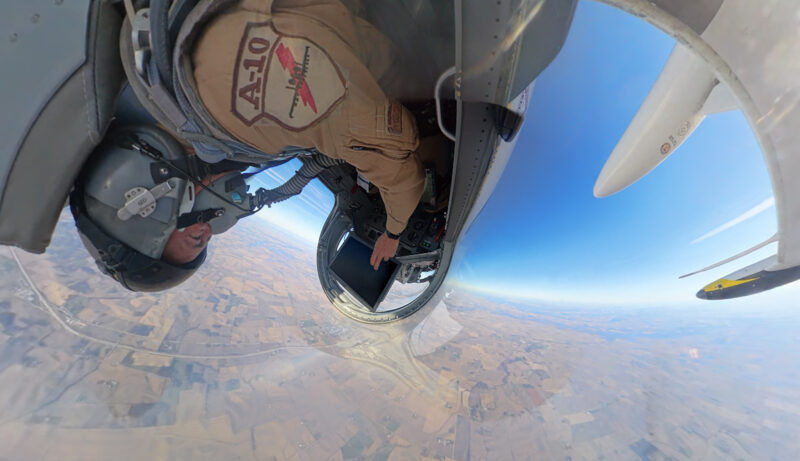
Lockheed Martin Skunk Works, Lockheed Martin’s Demonstrations and Prototypes organization and the University of Iowa’s Operator Performance Laboratory (OPL) recently successfully showcased a crewed-uncrewed teaming mission.
The Skunk Works and OPL teams conducted a series of flight tests that simulated an offensive counter air mission. In the simulated mission, airborne, human “battle manager” aboard an L-39 Albatros assigned targets to two artificial intelligence (AI)-controlled L-29 Delfin jets. The jets worked together to defeat two mock enemy jets using simulated mission systems and weapons.
The battle manager issued real-time commands through a touchscreen pilot vehicle interface.
“The work we’re doing with the University of Iowa’s OPL is foundational for the future of air combat, where a family of crewed and uncrewed systems will work together to execute complex missions,” John Clark, Lockheed Martin Skunk Works vice president and general manager, said. “We’re excited to leverage our diverse skillsets to advance all elements of this new way of operating.”
Previous flight tests demonstrated AI-controlled air-to-ground jamming and geolocation. This is the first test to include a human overseeing the AI’s actions.
Lockheed Martin is a global defense technology company.
Skunk Works enables crewed-uncrewed teaming to optimize operational flexibility, abbreviate data-to-decision timelines and improve pilot safety.

